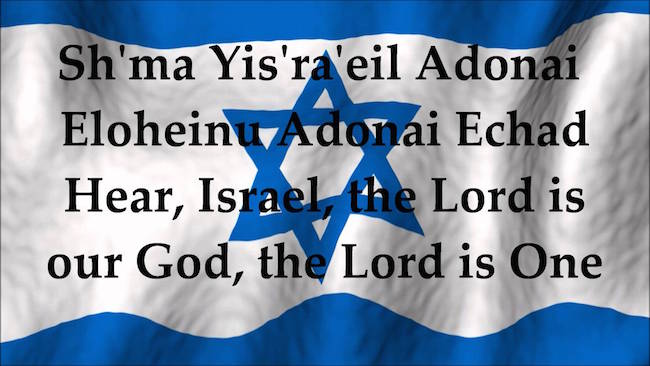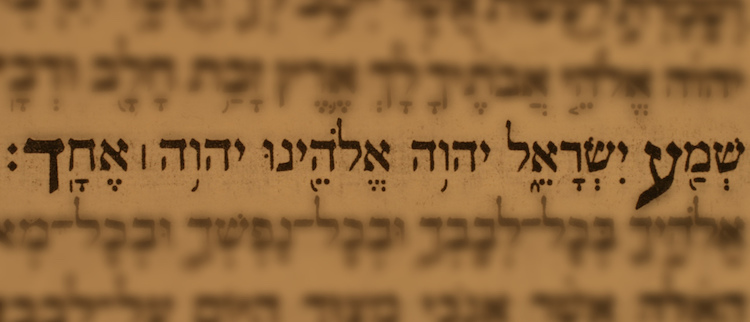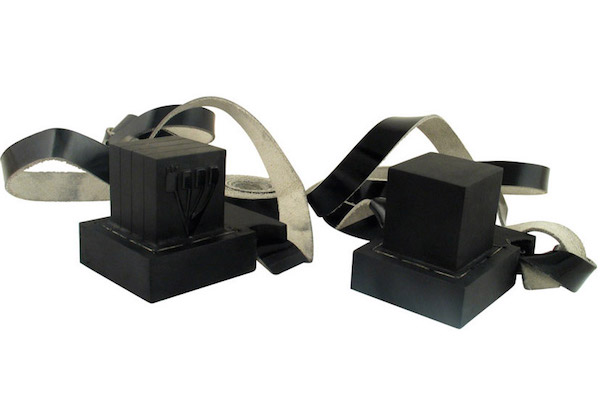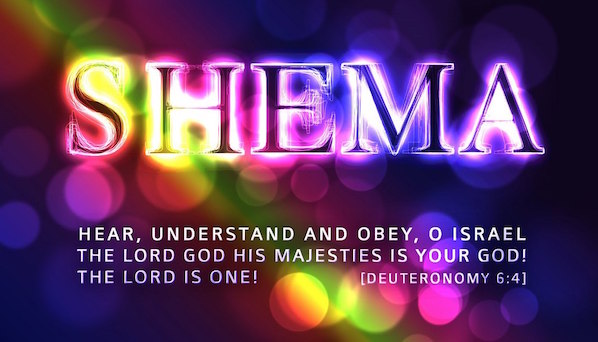This week’s Torah Portion is called “עקב” pronounced “ekev” and can mean; “because of,” “as a consequence of,” or “following after.” The word “עקב” – “ekev” also means “heel” and is the same root of the name “Jacob” or in Hebrew “יעקב” – “Yakov.” Jacob got his name because he came out of the womb after his brother while grabbing onto his brother’s heel (Gen. 25:26). This helps us understand how the word “ekev” is used in context.
The word “ekev” is found in the first verse in this week’s Torah Portion: “Then it shall come about, because you listen to these judgments and keep and do them, that the LORD your God will keep with you His covenant and His lovingkindness which He swore to your forefathers” (Deut. 7:12). The word “ekev” is difficult to translate from Hebrew into English by using just one word. In the verse quoted above, the first two words in Hebrew are used together as a phrase “והיה עקב” – “Vehaya ekev” and it takes six words in English to bring the meaning across; “Then it shall come about, because…” The word “ekev” can often be translated into English as “because,” however, it is important to understand that there is a deeper meaning that carries with it the idea “as a consequence of” or “following after.” We see the word “ekev” used in a similar way in connection to the life of Abraham (Gen. 22:18. 26:5) as a result of Abraham obeying God and keeping God’s commandments.
Watch a short summary of this week’s Torah Portion commentary:
This first verse (Deut. 7:12) in this week’s Torah Portion sets the tone for the context of the whole Torah Portion (Deut. 7:12 – Deut. 11:25). The premise of this Torah Portion is that there is a covenant between God and His people and if His people will be faithful to keep His Word then God will also be faithful to His covenant to bless His people, protect them, and sustain them in the Land. This theme, together with its blessings and curses, is repeated numerous times throughout the chapters and verses of this Torah Portion. The irony of this theme is that the constant struggle of the Jewish people has been to fulfill these words and keep their part of the covenant.
How can the people of God be faithful to keep God’s Word?
In this week’s Torah Portion we read a few verses of the famous creed of Judaism, which is called the “Shema.” The “Shema” is the first word of the prayer that is called by its name. The “Shema” begins with this well-known phrase: “שמע ישראל יהוה אלהינו יהוה אחד” –“Hear, O Israel! The LORD our God, the LORD is one!” (Deut. 6:4), which is part of last week’s Torah Portion. The “Shema” is a command which literally means “Hear!” and begins with a clarion call for the people of Israel to hear the Word of God and to know the one and only LORD. These words are then followed by an exhortation to love God with all of one’s heart, soul, and strength while observing all of His commandments (Deut. 6:5-9).
Shema Israel!
It is important to note that the “Shema” is not just this one simple phrase, “Hear O Israel, the LORD our God, the LORD is one,” but actually comprises three separate passages of Scripture; Deut. 6:4-9. Deut. 11:13-21. & Num. 15:37-41. These verses taken together make up 245 Hebrew words which are prayed daily by religious Jews. In praying through these Scriptures a Jewish person is accepting his responsibility before the God of heaven and earth to heed His Word and be a witness to God’s sovereignty over this world. The “Shema” is literally a creed that declares an uncompromising commitment to God and His Word. Click this link to view a song on the Shema: Shema Israel
In this week’s Torah Portion we read the core of the “Shema,” which is found in Deuteronomy chapter eleven. A reminder to love and obey God are given in verses 13-17, which is then followed by words of instruction regarding God’s Word:
You shall therefore impress these words of mine on your heart and on your soul; and you shall bind them as a sign on your hand, and they shall be as frontals on your forehead. You shall teach them to your sons, talking of them when you sit in your house and when you walk along the road and when you lie down and when you rise up – (Deut. 11:18-19).
Within this charge to keep all of God’s words, statutes, and commandments is the imperative to impress these words upon one’s heart and soul. Beyond this is the command to bind these words as a sign on one’s hand and as frontals on one’s forehead. How does one put these words into practice? Is the Word of God to be literally attached to one’s hand and one’s forehead?
The charge to bind these words on one’s hands and forehead come from the Hebrew text which literally reads: “וקשרתם אתם לאות על ידכם והיו לטוטפת בין עיניכם” – “and you shall bind them as a sign on your hand and they shall be as frontlets between your eyes.” The words used for “sign” and “frontlets” are the Hebrew words “אות” – “oat” and “טוטפת” – “totafot” respectively. The word “אות” – “oat” is used numerous times in Scripture and simply means a “sign.” The word “טוטפת” – “totafot,” on the other hand, is only used three times in Scripture and is difficult to define. Each time the word “טוטפת” – “totafot,” is used, however, it is always accompanied by the word “אות” – “oat” with the same exact sentence structure each time: “as a sign on your hand and they shall be as frontlets between your eyes” (Ex. 13:16. Deut. 6:8. Deut. 11:18).
A Sign or “Tefillin?”
Traditionally the rabbis have interpreted this phrase, “a sign on the hands and frontlets between your eyes,” in an extremely literal way. One rabbinic source quoting Pseudo-Jonathan states: “You shall bind them as written signs on your left arm and they shall serve as tefillin upon your forehead opposite your eyes” (Onkelos on the Torah, volume Devarim, p. 63). This rabbinic understanding removes the figurative nature of the signs and frontlets and makes them quite real and physical. It also translates the word “טוטפת” – “totafot,” as “tefillin.” “Tefillin” is a box with a portion of Scripture inside of it that is tied to one’s head and arm with leather straps.
As a result of this rabbinic interpretation, religious Jewish men have for centuries been binding scripture boxes on their head and arm every morning (except the Sabbath) during “shacharit” prayers in fulfillment of this command. The understanding in orthodox Judaism is that praying with tefillin on the head and on the arm, which is placed next to the heart, literally and physically places the Scriptures near the mind and heart of man. To view a demonstration of how tefillin is put on the arms and forehead watch this video: Tefillin
The word “טוטפת” – “totafot,” as mentioned earlier, is not easily defined because of its rare usage in the Bible. Studying this word in context, however, we can make an educated guess to determine its true meaning. In all three occurrences of the word “טוטפת” – “totafot” it follows the word “אות” – “oat” in context (Ex. 13:16. Deut. 6:8. Deut. 11:18). In some rabbinic resources the word “טוטפת” – “totafot” is translated as “a clear sign” (Onkelos on the Torah, volume Devarim, p. 107). Therefore in context this phrase in question would be understood as “a sign on your hand and a clear sign between your eyes.” This is logical and seems to fit the context, however, there is a question that remains to be answered: Is it a literal and physical sign or is it simply meant to be figurative?
As in all areas of Judaism there is always several opinions about any given subject and it is no different with the understanding of the subject at hand. In the highly respected rabbinic resource Onkelos on the Torah, the following commentary is given regarding the meaning of this phrase in Deuteronomy 11:18:
“bind them [these words] as a sign on your hand.” This figure of speech means that the Israelites should remember the divine injunction whenever they do (“hand”) anything… they should also be a clear sign between your eyes. This is a metaphor for the requirement to think about the laws frequently. – (Ibid, p. 107)
In this commentary we clearly read a rabbinic explanation that takes the figurative perspective on this phrase of binding the Word of God on one’s hand and between one’s eyes. There is the practical element of letting what the hand finds to do and the thoughts of the mind to be in accordance with God’s Word. (Please note that even though there are some who hold to a figurative understanding of these terms, orthodox Judaism only teaches that the sign on the hand and forehead are tefillin.)
This practical and metaphorical perspective also corresponds to the first time this phrase is used in the Bible. In Exodus chapter thirteen, God commanded Moses to instruct the people to devote their firstborn males to the LORD; the animals were to be sacrificed and the human males were to be redeemed. Towards the end of this chapter Moses explained the reason for this act of the sacrifice and the redemption of the firstborn: “So it shall serve as a sign on your hand and as frontlets on your forehead, for with a powerful hand the LORD brought us out of Egypt” (Exodus 13:16). The reason that the Israelites were to sacrifice their firstborn animals and redeem their firstborn sons was so that they would remember that it was the power of the LORD that brought them out of Egypt. The act of devoting the firstborn male was to be a sign in what they did with their hands and to be something that they thought about with their minds. Living out God’s Word seems to be the main idea in this context.
Worshiping God with Our Total Being
To recite the “Shema” is to make a divine declaration regarding one’s relationship to God and to His Word. Living a life that is completely devoted to God and holding steadfast to God’s Word appear to be the main points of this week’s Torah Portion, especially regarding this subject of the “sign on the hand and a clear sign between the eyes.”
It is not enough to simply have God’s Word in a prayer box (tefillin) and place it on one’s arm and on one’s forehead. It is also not enough to have God’s Word on a book shelf in our home or in our smart phone in twenty different versions or translations if we are not appropriating the Word of God in our lives.
In the middle of this week’s Torah Portion we found this verse: “Now, Israel, what does the LORD your God require from you, but to fear the LORD your God, to walk in all His ways and love Him, and to serve the LORD your God with all your heart and with all your soul…” (Deut. 10:12). God wants us to serve Him with a whole heart. As we love God with our lives, walk in His ways, and meditate on His Word our thoughts and our actions will be consistent with our Master. Yeshua demonstrated this lifestyle for us while He was on earth.
Fulfilling the “Shema”
After Yeshua spent forty days and forty nights fasting in the desert, the Bible tells us that Yeshua became hungry. Satan came to Yeshua to tempt Him saying, “If You are the Son of God, command that these stones become bread” (Matt. 4:3). Yeshua was hungry and He is the Son of God, however, Yeshua did not need to prove Himself to Satan or listen to his voice. Yeshua knew what the will of the Father was for His life and He held fast to this. Yeshua responded to Satan with a quote from the Torah: “It is written, ‘Man shall not live on bread alone, but on every word that proceeds out of the mouth of God’” (Matt. 4:4).
Three times Satan came to Yeshua and tried to tempt Him to do something contrary to the will of the Father and three times Yeshua responded to Satan with an appropriate quote from the Scriptures. All three Scriptures that Yeshua quoted are from the book of Deuteronomy: Deuteronomy 8:3. 6:16. 10:20. Two of these Scriptures are from this week’s Torah Portion reading and one from last week’s reading.
In the face of temptation, after fasting forty day and forty nights, Yeshua fought and defeated the enemy Satan by properly handling the Word of God. Yeshua loved the Father in heaven with all of His heart and Yeshua kept all of the Word of God. All of Yeshua’s actions (what He did with His hands) and His thoughts (what He mediated on with His mind) were inline with the Father above because He knew the Word and will of the Father. Yeshua fulfilled the “Shema” with His life!
In order for us to live a successful spiritual life in this world we have to be willing to know God in such an intimate way that His Word is part of our very being. Our lives must be marked by the “Shema;” a life overflowing with a love for God and an intimate understanding of His Word!
Shabbat Shalom!
If you enjoyed reading this article, we invite you to sign up for our weekly Torah Portion commentary on the sidebar to the right.
Torah Portion: Deut. 7:12 – Deut. 11:25
Hafatara: Isaiah 49:14 – Isaiah 51:3
Return to Torah Portion Homepage
Copyright Jewels of Judaism. All rights reserved 2015





